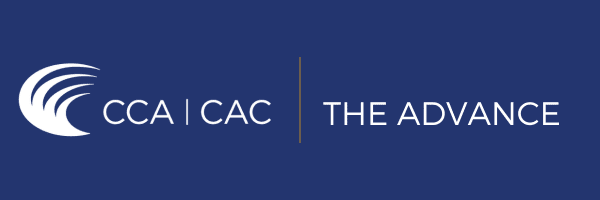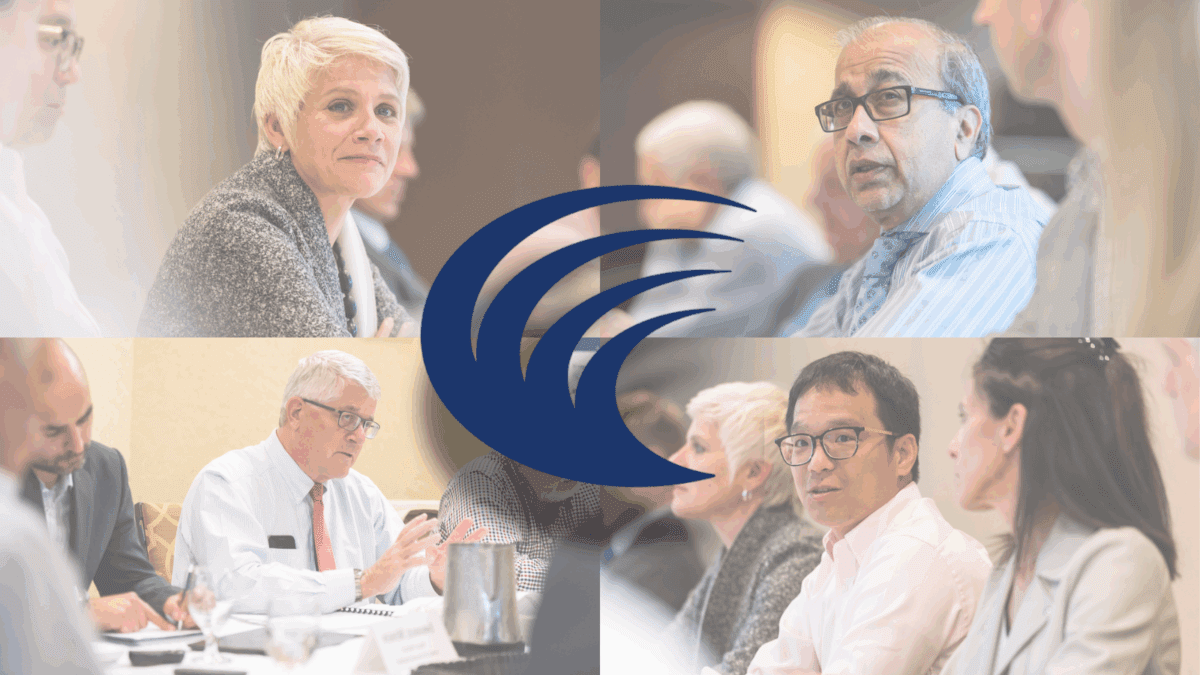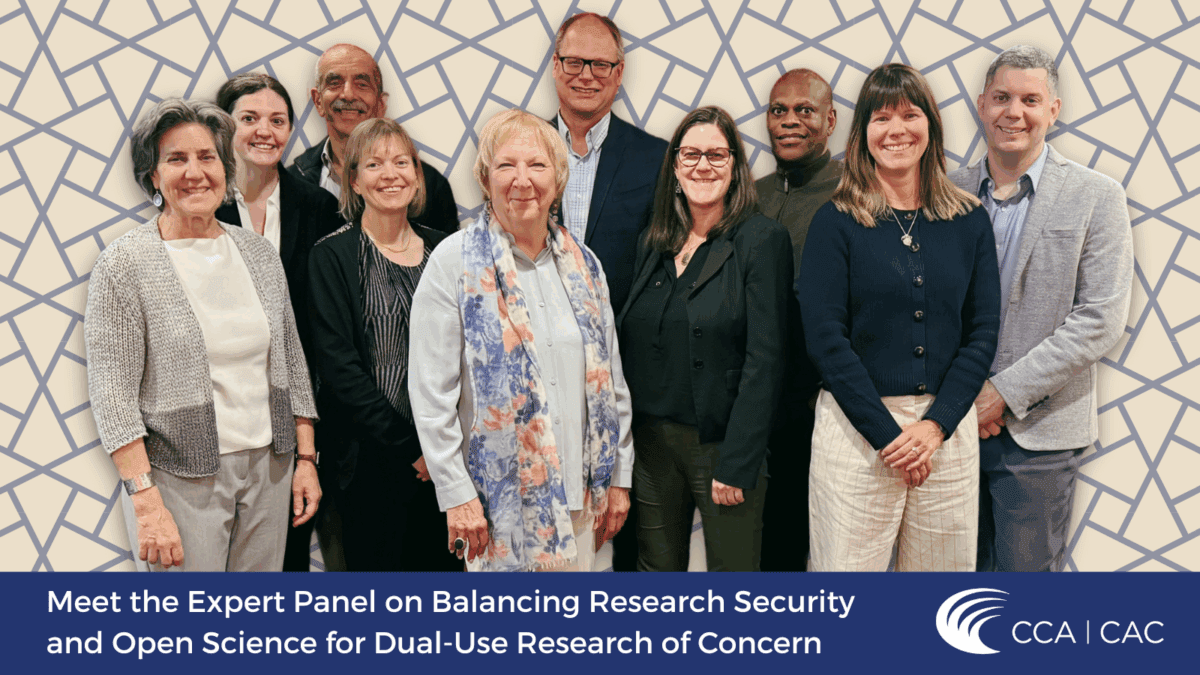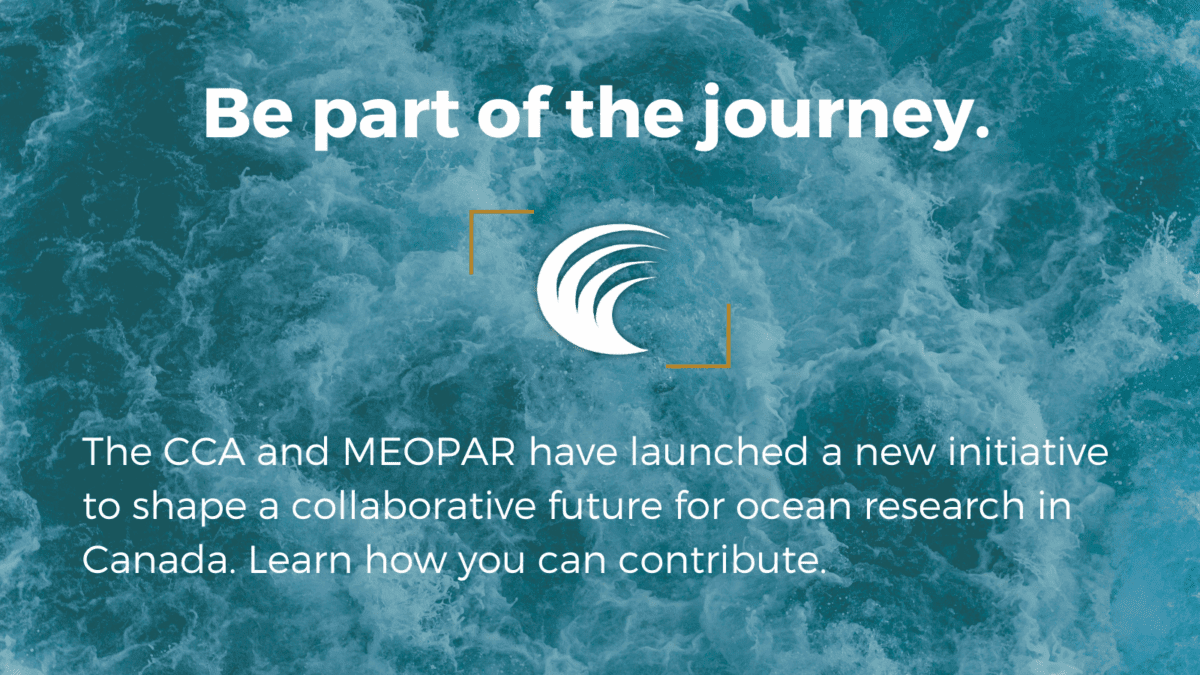
Welcome to The Advance, the newsletter of the CCA. Want to help us promote evidence-informed policy in the public interest? Feel free to forward this newsletter to a friend or colleague. If you haven’t subscribed yet, you can sign up here. Le français suit.
IN THIS EDITION:
- Building Canada’s “report card” for science, technology, and innovation
- Expert Panel on Balancing Research Security and Open Science for Dual-Use Research of Concern meets in Ottawa
- Readings and events on neuroscience, pandemic readiness, a new AI computing cluster, and more
- A collaborative future for ocean research in Canada

Building Canada’s “report card” for science, technology, and innovation
In September 2006, the CCA published The State of Science and Technology in Canada—an expert assessment of the scientific disciplines and technological applications in which Canada excels. Commissioned by Industry Canada, the report provided a much-needed foundation for benchmarking Canada’s strengths in science and technology; previously, the report noted, there was “almost no published literature focused specifically on strengths of the Canadian science and technology system overall, and particularly not at a reasonably fine level of detail.” The CCA has built upon its inaugural study ever since, steadily reassessing Canada’s science and technology strengths as well as the relationships between research, development, and innovation.
With our next assessment of Canada’s science, technology, and innovation ecosystem underway, with support from ISED’s Strategic Science Fund, we are revisiting our flagship assessments and their impacts on our collective understanding of science, technology, and innovation.
Read Science, Technology, and Innovation in Canada: Tracking Our Evolution.

Readings and Events
- CIFAR is now accepting applications for its Neuroscience of Consciousness Winter School, to be held in Montebello, Quebec. CIFAR describes the school as “a unique, three-day event where tomorrow’s neuroscience leaders work closely with world-class researchers.” The deadline for applications is June 23.
- For the Conversation, a team of researchers examines Canada’s “fragmented immunization data” and a drop in vaccine confidence, then asks if the country is prepared for a new pandemic. “In 2024, 17 per cent of Canadian parents were ‘really against’ vaccinating their children, up from four per cent in 2019,” write the researchers, drawing on work by the CCA’s Expert Panel on the Socioeconomic Impacts of Science and Health Misinformation. (Noni MacDonald, a co-author, served as a member of the CCA panel.)
- TamIA, the first piece of the Pan-Canadian AI Compute Environment (PAICE), launched at Université Laval. TamIA is a computing cluster that will work in tandem with infrastructure at the University of Alberta and the University of Toronto. Frédéric Chanay-Savoyen, Vice President of AI Solutions and Technology at Mila, a PAICE partner, says TamIA’s increased computing capacity “makes it possible to develop an environment that fosters interdisciplinary collaboration on a national scale and that will allow Quebec and Canada to maintain its position as a leader in the field of cutting-edge AI research.”
- The Open Notebook, a nonprofit that supports science journalists, recently asked a group of reporters how they navigate research reports, especially those that are hundreds (or thousands) of pages long. Their responses hold insights for all members of the science media.
- Dr. Henry Friesen, best known for his discovery of prolactin and his trailblazing research on human growth hormones, died on April 30 at 90 years old. Friesen, a former member of the CCA’s Board of Governors, helped lead the development of the Canadian Institutes of Health Research and is a member of the Canadian Medical Hall of Fame, among many other honours.
